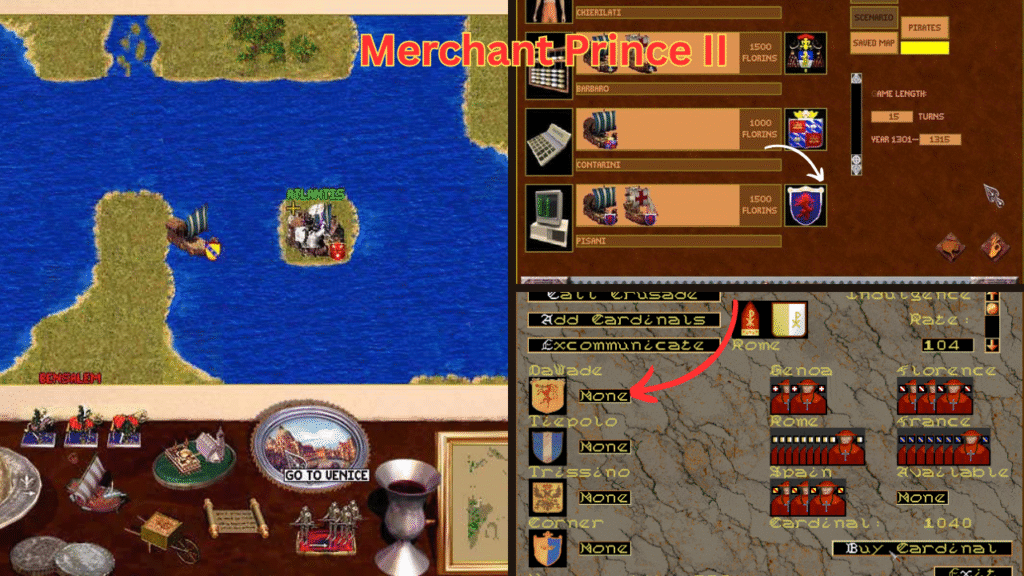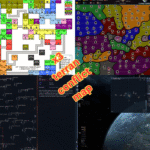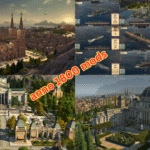Introduction
When strategy games are discussed among retro gamers, Merchant Prince II always finds a place in the conversation. Released in 2001 by Take-Two Interactive and developed by Holistic Design, this game was a sequel to the original Merchant Prince (also known as Machiavelli the Prince). While it did not reinvent the genre, it refined the original experience and brought players into a world of trade, politics, diplomacy, and intrigue set during the Renaissance era.
For those who enjoy games that combine economics, strategy, and cunning, Merchant Prince II offers an unforgettable mix. Though the game is over two decades old, its influence and charm continue to capture the attention of strategy game enthusiasts.
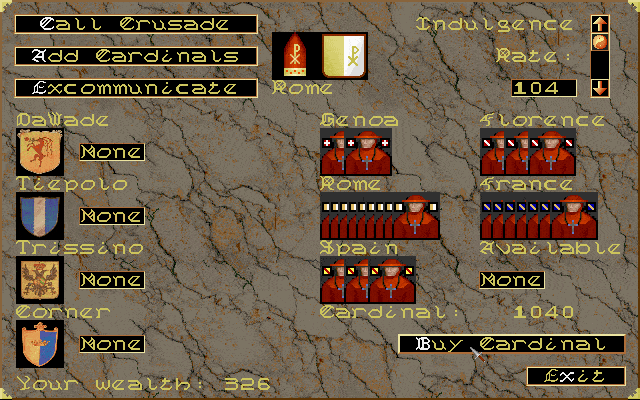
Background and Development
The original Merchant Prince was released in 1994. Its unique gameplay, mixing business with politics, earned it a loyal following. When Merchant Prince II was announced, fans expected a modernized version of the beloved classic.
Interestingly, Merchant Prince II was more of a remaster than a full sequel. It reused much of the content from the first game but with updated visuals and a slightly enhanced interface. While some critics felt it did not add enough innovation, others praised it for bringing a cult classic to a new generation of gamers.
Gameplay Overview
At its heart, Merchant Prince II is a turn-based strategy game that revolves around wealth, power, and influence. Players take on the role of a Venetian merchant during the Renaissance, seeking not only to build a profitable trading empire but also to manipulate politics and religion to gain dominance.
Key Elements of Gameplay:
- Trade and Commerce
- Players buy and sell goods such as spices, silk, and precious metals.
- The goal is to exploit supply and demand across various regions to maximize profits.
- Venice serves as the home base, but success depends on building a vast trade network across Europe, Africa, and Asia.
- Politics and Intrigue
- Players can bribe, scheme, and manipulate political systems.
- Elections, corruption, and alliances play a huge role in determining who holds power.
- Instead of brute force, cunning often wins the game.
- Religion and Influence
- The Church has a strong influence in the game, reflecting the historical importance of religion during the Renaissance.
- Players can bribe or manipulate religious leaders to gain support and strengthen their position.
- Exploration
- Ships can be sent on voyages to discover new trade routes and colonies.
- Successful expeditions bring back rare goods and increase wealth, but they also come with risks such as pirates, storms, and political tensions.
Strategy and Depth
What makes Merchant Prince II so engaging is its blend of economics with politics. Unlike other strategy games of its time, it was not just about military conquest. Instead, players had to:
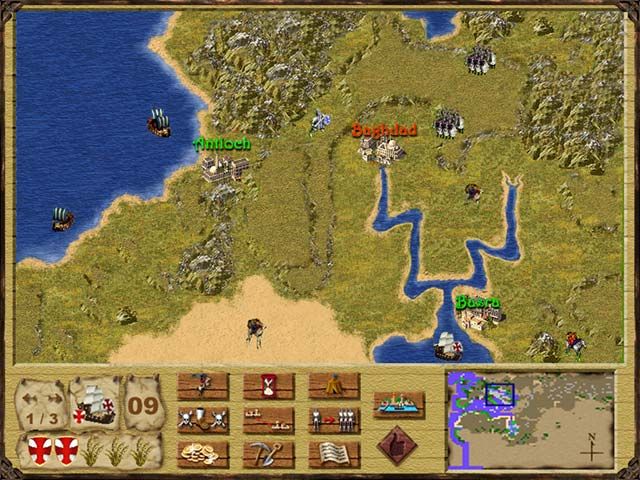
- Think like a businessman.
- Act like a politician.
- Scheme like a Machiavellian ruler.
For example, while one player might focus on controlling trade routes, another might win by corrupting politicians or using religion to manipulate public opinion. This layered approach gave the game immense replay value.
Graphics and Presentation
For a game released in 2001, Merchant Prince II had decent visuals but not groundbreaking. The interface was simple, the maps were functional, and the graphics felt more like an updated version of the 1994 game rather than a new experience.
While some players were disappointed by the lack of innovation, others appreciated the focus on depth of gameplay over flashy graphics. In fact, the minimalistic style helped players concentrate on strategy without being distracted by visuals.
Reception at Release
The game received mixed reviews when it was released.
- Praise:
- Deep and addictive gameplay.
- Authentic Renaissance setting.
- Blend of trade, politics, and religion rarely seen in other games.
- Criticism:
- Lack of new features compared to the original.
- Dated graphics and interface.
- Some players expected more from a “sequel.”
Despite this, Merchant Prince II gained a cult following among gamers who loved economic and political strategy titles.
![Merchant Prince II [Articles] - IGN](https://assets1.ignimgs.com/2001/05/08/merpri2006-220562.jpg)
Legacy and Influence
Though not as popular as Civilization or Europa Universalis, Merchant Prince II carved its niche in gaming history. Its unique mix of commerce, politics, and religion influenced later strategy games.
Games like Europa Universalis and Total War series incorporated similar ideas of diplomacy and trade alongside conquest. In many ways, Merchant Prince II was ahead of its time in exploring non-military paths to victory.
Even today, retro gamers and strategy fans revisit Merchant Prince II because of its timeless gameplay mechanics. Mods and fan communities have also kept its memory alive, ensuring that new players discover the game decades later.
Why Merchant Prince II Still Matters
In an era where most strategy games focus on warfare, Merchant Prince II remains special because it shows how money and influence can be more powerful than armies. It emphasizes:
- The importance of economics in shaping history.
- How politics and corruption often decide outcomes more than battles.
- The role of religion and ideology in controlling societies.
These lessons are not just limited to gaming—they reflect real-world history and human behavior.
Conclusion
Merchant Prince II may not have been the most advanced or revolutionary game of its time, but it offered a rare and intelligent mix of trading, politics, religion, and strategy. For players who enjoy thinking several steps ahead and exploring power beyond the battlefield, this game remains a classic worth remembering.
Even two decades later, its legacy continues to inspire both gamers and developers, proving that sometimes, the most powerful weapon is not a sword—but a coin.
